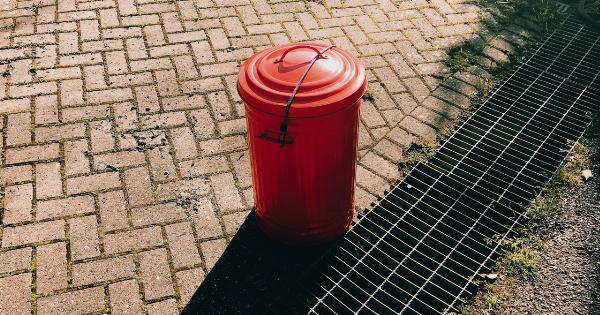Kidney stones are quite painful and occur when minerals and salt in the urine stick together to form small, hard deposits in the kidneys.
These deposits can cause blockages in the urinary tract, leading to severe pain, discomfort, and potential kidney damage. Unfortunately, many people are unaware of the things they do each day that could contribute to the formation of kidney stones. Here are ten things that may lead to kidney stones unknowingly:.
1. Not drinking enough water
Dehydration is one of the leading causes of kidney stones. When you’re dehydrated, urine becomes concentrated with higher levels of minerals and salt. Over time, this can lead to the formation of painful kidney stones.
Drinking plenty of water ensures that your urine will be less concentrated and flushed out more often, decreasing your risk for kidney stones.
2. Eating too much salt
Consuming too much salt can increase the amount of calcium in your urine, leading to the formation of kidney stones. Limiting your salt intake and increasing your water consumption can help reduce the risk of developing kidney stones.
3. Consuming too much animal protein
Animal protein is high in purines, which can lead to the formation of uric acid stones. If you consume large amounts of animal protein, consider replacing some of it with plant-based proteins like legumes, tofu, and quinoa.
4. Not getting enough calcium
Contrary to popular belief, getting enough calcium in your diet may actually help reduce the risk of kidney stones. This is because calcium binds with oxalates in your digestive tract, preventing them from entering your urine and forming stones.
However, it’s best to get your calcium from food sources instead of supplements.
5. Using too much antacid medication
Antacid medications contain calcium, which can contribute to the formation of calcium-based kidney stones.
If you suffer from acid reflux or heartburn, consider trying natural remedies like ginger or chamomile tea instead of relying on antacid medication.
6. Drinking too much caffeine
Caffeine can dehydrate your body, leading to a higher concentration of minerals in your urine. If you drink coffee, tea, or soda frequently, consider cutting back on your intake.
7. Not getting enough potassium
Potassium helps regulate the amount of calcium in your urine, reducing the risk of kidney stone formation. Foods high in potassium include bananas, sweet potatoes, spinach and avocados.
8. Eating too many oxalate-rich foods
Oxalates are found in many healthy foods like spinach, kale, and almonds. However, consuming too many oxalate-rich foods can increase the likelihood of developing calcium-based kidney stones.
If you’re prone to kidney stones and consume a lot of oxalates, consider limiting your intake or supplementing with calcium-rich foods.
9. Being overweight or obese
Obesity can contribute to the development of kidney stones by increasing the amount of calcium in your urine. Losing weight and staying within a healthy weight range may help reduce the risk of kidney stones.
10. Avoiding physical activity
Lack of physical activity can lead to urinary stasis, which is when urine sits in your bladder for too long. This can increase the concentration of minerals in your urine and lead to the formation of kidney stones.
Engaging in regular physical activity can help keep your urinary system healthy and reduce the risk of kidney stones.































